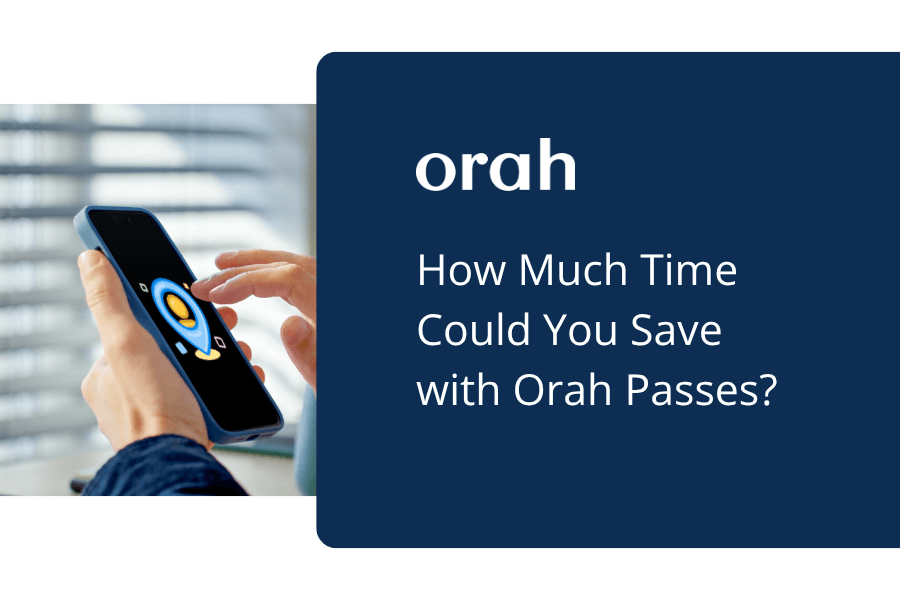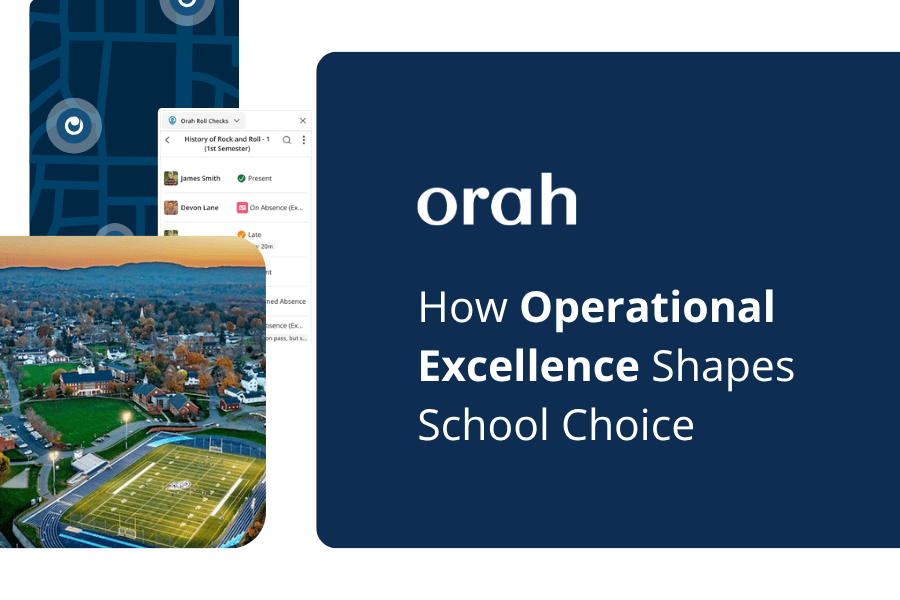4 Side Effects Screens Have On The Well-Being Of Your Boarding Students, Backed By Science
Vincent Paget
•
October 29, 2018

Teens spend an average of 9 hours in front of a screen every day, according to a study by Commonsense Media. That’s 37% of your 24 hour day, 56% if you don’t include the 8 hours you spend sleeping.Technology has certainly cemented its position in our everyday lives, changing the way we live, work, date and play.We often talk about how these devices have greatly enhanced our everyday lives, but we often overlook how are our excessive screen-time habits are affecting our physical and emotional well-being, especially for our developing youth?Multiple studies have indicated that excessive amounts of screen-time can affect the brain of developing children long into their mid-twenties.Smart devices have become a big talking point for Boarding Schools that wish to remain up to date in the 21st Century but are also wary of how it can affect a growing child.Should you ban them completely? or Should they be responsible for their own screen-time? or Should you only allow them to use their devices at certain times?In this post, I’ll take a look at what options you have when it comes to reviewing your smartphone policy. But first, let's look at how excessive amounts of screen-time can potentially affect the development of our younger generation.Here are 4 potential side effects, backed by science:
1. Emotional Processing
Studies have indicated that children who spend an excessive amount of time in front of screens will struggle to develop proper communication and interpersonal skills needed for everyday life. This is simply because communication through a screen is not the same as good old fashioned, face-to-face communication.Whilst, instant messaging and live video chats have made communicating quick and easy, these screens struggle to display forms of non-verbal emotion - Voice inflexions, body language, facial expressions, pheromones etc.The difference is like looking at a picture of cool, fine sand as opposed to actually walking barefoot in it. You can imagine what the sand might feel like through a picture, but it’ll never compare to actually feeling it through your toes.The main problem, is children are choosing to experience the "cool sand" through screens rather than in real life.Research suggests, that this kind of excessive interaction through screens, during a child’s important developing years (from puberty till their mid-twenties) has the potential to rewrite their brains neural pathways. The studies indicate that it can affect the brains “insula”, which is associated with our capacity to feel empathy and compassion for others, as well as our ability to interpret emotions from physical actions.Excessive screen time among adolescents and their desire to interact through screens rather than real life can potentially lead to serious mental health risks such as social anxiety, isolation and depression.[Tweet "Face-to-face communication is key to developing emotional processing skills #ScreenTime vs #FaceTime"]
2. Decision Making
For developing children, studies have also indicated that excessive amounts of screen time can affect their executive functions - also known as decision-making skills.Before the internet, children would engage in play and find themselves in real life situations where they had to use their problem solving and organisational skills. But now that a lot of these problems can easily be solved with modern technology, and the fact that they’re more interested in what’s on Instagram, means that they aren’t using and developing these skills as much as they should.Multiple studies have indicated that this can affect the area of the brain known as the “frontal lobe” which governs our executive functions such as planning, prioritising, organising and impulse control. Basically the ability to make rational decisions to “get things done”.[Tweet "Excessive #ScreenTime limits children from developing problem-solving skills"]Being dependent on the internet for answers, not only reduces the development of their problem-solving skills but can also lead to abnormal behaviour through misled information. A recent study has indicated that 62% of smartphone owners have used the internet to get information about a health condition.If you’ve done this before, you’ll know how overly exaggerated the internet can be when you try to diagnose yourself online. Most of the sources online are not provided by registered professionals and as a result, viewers can be led to believe wrong information and misadvised if they decide to treat themselves.
3. Attention Spans
Further studies have indicated that people who are addicted to their electronic devices may experience urges that are similar to the cravings for drugs. Research has shown the brain releases “ dopamine," which is a reward processing and addiction receptor.The constant stream of new information and instant satisfaction through online gaming and social media has programmed adolescents to develop an expectation for constant satisfaction and entertainment in other aspects of their life.In other words, they’re easily distracted.Their high levels of expectation reduce their ability to stay focused and persist with tasks where they may not experience immediate results, such as studying for a test, paying attention in a lecture or a deep conversation etc.Instead, young teens tend to multi-task to keep their minds stimulated.Conventional wisdom tells us that digital natives (young people born and raised with technology) have developed the ability to multi-task more efficiently because they’ve been doing it from such a young age. You’ve probably heard your students/pupils tell you they study better while listening to music, watching tv or juggling texts and tweets.Multi-tasking has become a “lifestyle” of sorts for many young people, but studies have indicated that “chronic multi-tasking” can diminish their brains capacity to function effectively. The human brain is generally not capable of focusing on multiple streams of information at the same time.A study from the Vanderbilt University suggests the human brain shuts down one task when asked to do another at the same time, and the delay from switching between tasks can impact an adolescent's memory and learning skills.[Tweet "#ScreenTime is like a #Drug"]
4. Sleeping Patterns
You’re probably already aware of this, but the more screen-time a teenager has, the less sleep they’re likely to get, especially if they use their devices right before bed. This is perhaps one of the more important effects of screen-time because sleep is one of the most crucial elements for growing children, no matter what age they are.Screen-time can affect your sleeping pattern in many ways, but the main reason is simply that they’re getting to bed later. Screen time is eating into their sleep time.Also, the bright lights from their devices can interfere with their Circadian Rhythm - Your day-night system that tells you when you should be asleep and when you should be awake.Repetitive interference with this can alter their natural body clock, influencing them to habitually go to sleep later and wake up later. This is a lot worse for those at boarding school because they can’t sleep in and wake up late. Instead, they go to sleep later and wake up earlier, reducing their amount of sleep which can lead to other health problems.Additionally, the type of content they're engaged with just before bed can affect how long it takes for them to fall asleep. The media content can increase their psychophysiological arousal, which activates their mind just as it should be slowing down to rest.[Tweet "Your #ScreenTime is eating into your #SleepTime"]
So What Are Your Options?
A policy for managing your boarder's screen-time can take many forms, and each schools policy will differ depending on your school's values and views towards technology.But generally, each policy can be positioned and compared with, on a scale that ranges from the strictest of policies to the more easy-going, non-policies.Policies that lean towards the stricter side will:
- Reduce any chance of suffering from the negative side effects of excessive screen-time.
- Reduce any distractions from screens to allow your borders to focus on their academic studies.
- Encourage more real-life interactions and learning through play
But at the same time, you:
- Risk preventing your boarder's from engaging and developing essential technical skills.
- Risk losing out on the many positives effects that technology has to offer.
- Will be required to strictly enforce the rules, which can harm your relationship with your boarders because moody adolescent teens can be hard to deal with.
Policies that lean towards the more easy-going side, will:
- Give boarder's the responsibility to manage their own screen-time, helping to build trust between you and your boarders.
- Help your boarder's to develop the technical skills to prepare them for life outside of boarding school.
- Allow your boarder's to benefit from the positive elements that technology has to offer.
But at the same time, you:
- Risk giving them too much trust. Some of them will just abuse their power.
- Risk exposing your boarders to the negative side-effects of excessive screen-time.
- Will find it difficult to enforce policy with no concrete rules. Instead, there will generally be guidelines that are broad and fuzzy.
Finding The Right Balance
The key to developing the perfect policy for your school is about finding the right balance between providing your boarders with the opportunities to use modern technology, whilst protecting them from the negative side-effects.This is obvious, but each school will interpret it in a different way.For instance, the London Acorn School believes that modern technology is not necessary for education and have established a strict “no-screens” policy. Their policy even requires parents to uphold the rules at home and during school holidays.They aren’t arguing for a technology-free society, rather they just believe the use of technology isn’t a skill set that needs to be taught at school, and the effects it has on developing children is just not worth it.On the other hand, Ex-Eton principle, Tony Little, believes that it’s possible for boarders to use smart-devices at school, as long as it’s in a balanced manner.He understands that modern technology is useful, not only for the boarders but for the staff as well. He believes that a vibrant boarding house will help to reduce their screen time because they’ll be too engaged in what’s happening right in front of them.However, he still admits there’ll still be some challenges with boarders that are overly consumed by their devices.So when it comes to reviewing your school's smartphone policy, it’s key that you define your school's interpretation of technology. Where do you stand on the scale?Secondly, it’s also important to consider your boarders perspective on the issue as well as their parents. London Acorn Schools policy is effective because they understand their parent's concerns.Creating the perfect policy won't happen overnight. It’s a matter of finding what works with your school's mission and your boarding environment.Perhaps the best thing you can do is to regularly review your policy, record what's working and what's not. Include your boarders in the process to help find the right balance. Some schools work with a group of boarding representatives or a student council to develop a set of rules that both parties can compromise with.This will help to instil trust and responsibility within your Boarders and strengthen your relationship. Furthermore, they’ll be less likely to complain if they’ve been involved in the process from the beginning.[Tweet "Include your #Students in the process of creating your #SmartphonePolicy"]
What’s Your Policy?
Is your policy coming up for review? If so, how does your boarding house currently tackle these issues and how do you think you can improve it?I’d love to hear your stories, and as always, if you have any thoughts or questions, please feel free to leave a comment below :)
Download your guide to knowing where students are
When you sign up, we'll send you a guide detailing what it takes to setup your daily operations to maintain student location awareness using your routine school processes like attendance, student leave, late arrivals, early dismissals & emergencies. You'll also recieve an invite to join the Orah community and get the quarterly newsletter.














